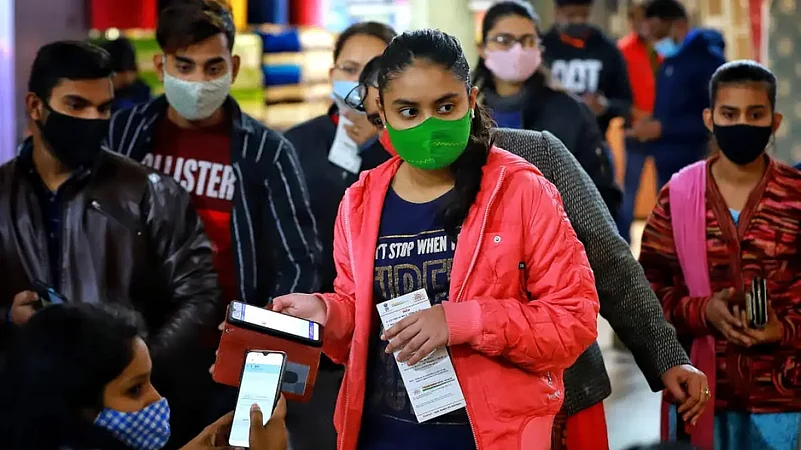The Covid-19 vaccination for children in the age group of 12-14 years will begin from Wednesday, Union Health Minister Mansukh Mandaviya announced on Monday. The children in the age group will be administered the Corbevax vaccine, which is manufactured by the Hyderabad-based Biological E.
Moreover, the Union government has also expanded the administration of “precaution doses” to everyone above 60 years of age. Previously, only those above 60 with comorbidities were eligible for such precaution doses.
Over 7 crore children aged 12-14 now eligible
Around 7.11 crore children will be vaccinated under the new age group that has now been included in the coronavirus vaccination program.
Children above 15 years of age were included in the vaccination program on 3 January this year. In this age group, around 9.05 crore children have been vaccinated as of 15 March, according to data on the CoWIN dashboard.
The vaccination of children is significant as their education has been hit hard during the pandemic. Most of the education moved to virtual mediums and the requirements of smartphones and computers for such a medium made it difficult for a large number of families that faced economic difficulties worsened by the pandemic.
Schools have started opening recently and the expansion of vaccination among children will help to keep them safe. It will also boost people’s confidence in sending their children to physical classes.
What are ‘comorbidities’ and what does their removal as a requirement mean?
The “precaution doses” began to be administered in India on 10 January, with healthcare workers, frontline workers, and anyone above the age of 60 with comorbidities being eligible for it. A “precaution dose” is a third dose of the vaccine to a person. It is more commonly known as a “booster dose” across the world.
Comorbidities are pre-existing health conditions that put a person at an increased risk of either getting an infection or at a greater risk of increased severity of disease in case they are infected with Covid-19. The comorbidities that are covered include conditions related to heart, kidney, liver, diabetes, and respiratory issues among others. HIV is also included as a condition. There are a total of 20 conditions including those mentioned in a list published by the Union health ministry.
The removal of the requirement of comorbidities for vaccination means that more people in the 60+ age group are now eligible for their precaution doses.
Why are precaution doses important?
The protection from a vaccine starts to wane after a period of time, which is different for different vaccines. In light of this fact and the emergence of more transmissible variants of coronavirus such as Omicron that are known to be able to bypass vaccine-induced immunity, it is recommended that everyone who is eligible for booster doses – called precautionary doses in India – should get them.
These doses are like a timely update to your immune system against coronavirus.
Most of the countries in the West have booster doses programs in advanced stages, with some experts even advocating a fourth vaccine dose.
The Indian government has not gone for a universal booster dose program as of now. Only healthcare workers, frontline workers, and people above 60 years of age are eligible as of now. These are the people who are most vulnerable to Covid-19 – healthcare and frontline workers because of increased chances of contact with coronavirus and people above 60 years of age because of a naturally weakened immune system because of their advanced age.
With PTI inputs


























